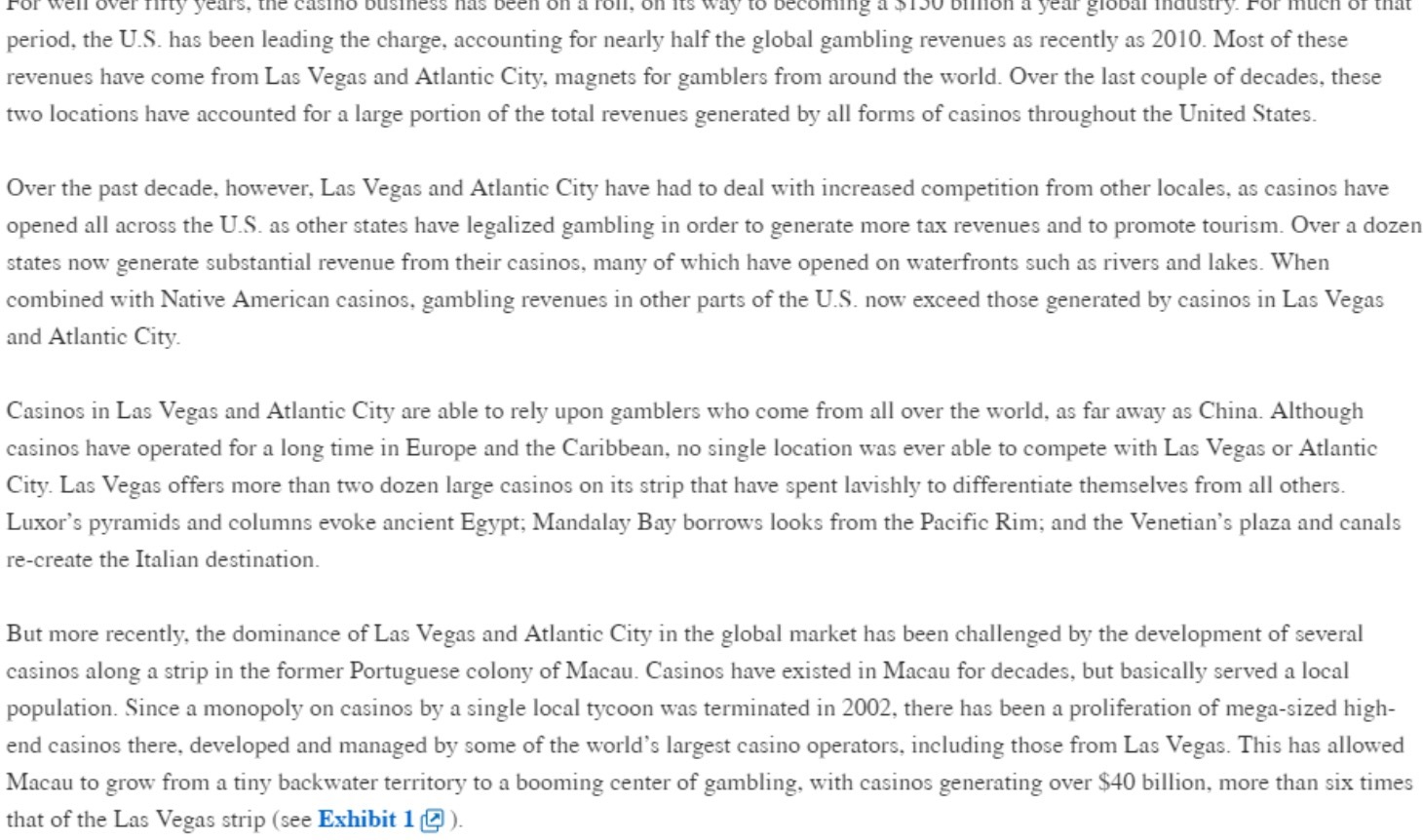period, the U.S. has been leading the charge, accounting for nearly half the global gambling revenues as recently as 2010. Most of these revenues have come from Las Vegas and Atlantic City, magnets for gamblers from around the world. Over the last couple of decades, these two locations have accounted for a large portion of the total revenues generated by all forms of casinos throughout the United States. Over the past decade, however, Las Vegas and Atlantic City have had to deal with increased competition from other locales, as casinos have opened all across the U.S. as other states have legalized gambling in order to generate more tax revenues and to promote tourism. Over a dozen states now generate substantial revenue from their casinos, many of which have opened on waterfronts such as rivers and lakes. When combined with Native American casinos, gambling revenues in other parts of the U.S. now exceed those generated by casinos in Las Vegas and Atlantic City. Casinos in Las Vegas and Atlantic City are able to rely upon gamblers who come from all over the world, as far away as China. Although casinos have operated for a long time in Europe and the Caribbean, no single location was ever able to compete with Las Vegas or Atlantic City. Las Vegas offers more than two dozen large casinos on its strip that have spent lavishly to differentiate themselves from all others. Luxor's pyramids and columns evoke ancient Egypt; Mandalay Bay borrows looks from the Pacific Rim; and the Venetian's plaza and canals re-create the Italian destination. But more recently, the dominance of Las Vegas and Atlantic City in the global market has been challenged by the development of several casinos along a strip in the former Portuguese colony of Macau. Casinos have existed in Macau for decades, but basically served a local population. Since a monopoly on casinos by a single local tycoon was terminated in 2002, there has been a proliferation of mega-sized high- end casinos there, developed and managed by some of the world's largest casino operators, including those from Las Vegas. This has allowed Macau to grow from a tiny backwater territory to a booming center of gambling, with casinos generating over $40 billion, more than six times that of the Las Vegas strip (see Exhibit 1 ( )







